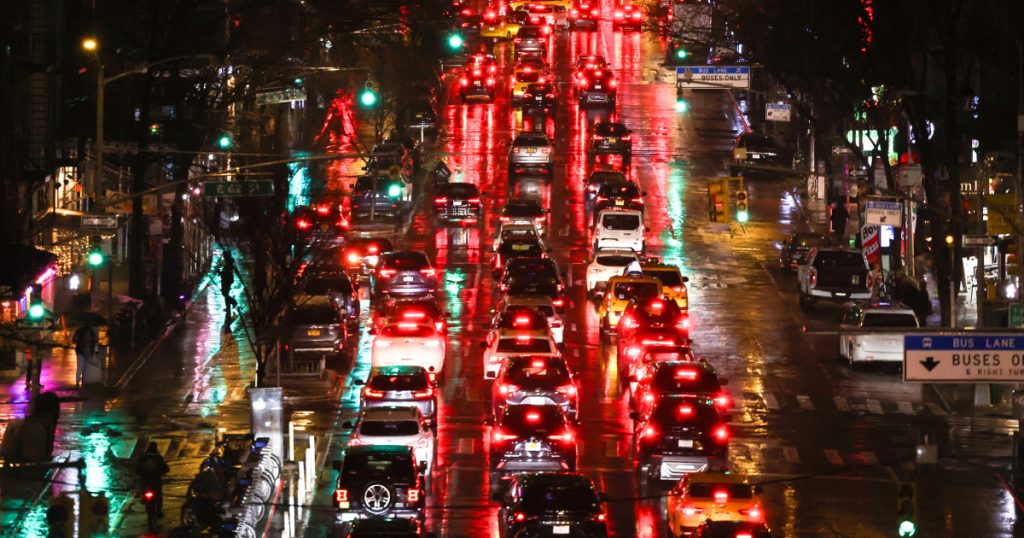The majority of the MTA board recently voted in favor of New York City’s congestion pricing plan, which will charge cars $15 to enter Manhattan below 61st Street and higher tolls for trucks. Only one board member opposed the proposal, with the approval following a 60-day public information campaign and 30-day testing period. Federal judges could still potentially block the plan, but the MTA is moving forward with the expectation that this will not happen.
Most of the toll readers are already installed, putting the MTA in a position to start collecting tolls as early as June 15. The board’s approval gave the final green light for the plan, which aims to contribute millions of dollars to the city’s transit system. While most cars will be exempt from the toll, government vehicles and taxis will not be exempt. Taxi advocates have criticized the plan, calling it detrimental to the workforce. The MTA claims that the plan is in line with a state law aimed at improving air quality and upgrading mass transit.
Congestion pricing will impact any driver entering Manhattan’s Central Business District below 60th Street, with different toll rates for cars, trucks, motorcycles, and other vehicles. Passenger vehicles will be charged $15, small trucks $24, large trucks $36, and motorcycles $7.50. The rates will be in effect during the daytime on weekdays and weekends, with reduced rates during off-peak hours. The plan aims to reduce the number of vehicles entering the area by 17% and generate $15 billion for transit improvements.
Although several groups had been advocating for exemptions from the toll, very few will avoid paying entirely. Specialized government vehicles and emergency vehicles will not be charged the toll, while low-income drivers earning less than $50,000 annually can apply to pay half the daytime toll price after the first 10 trips in a month. Drivers using specific tunnels to enter Manhattan will also receive credits to offset the congestion fee. Public-sector employees, residents of the Central Business District, utility companies, and those with medical appointments in the area did not receive exemptions as hoped.
The toll readers have already been installed, allowing the MTA to potentially begin congestion pricing as soon as June 15. Despite some opposition, the board’s vote in favor of the plan solidified the approval process. The plan is designed to generate revenue for transit system improvements, with congestion pricing expected to reduce the number of vehicles in the area and provide funds for modernizing subways and buses. While exemptions are limited, efforts have been made to provide discounts for certain groups to ease the financial burden of the toll.


